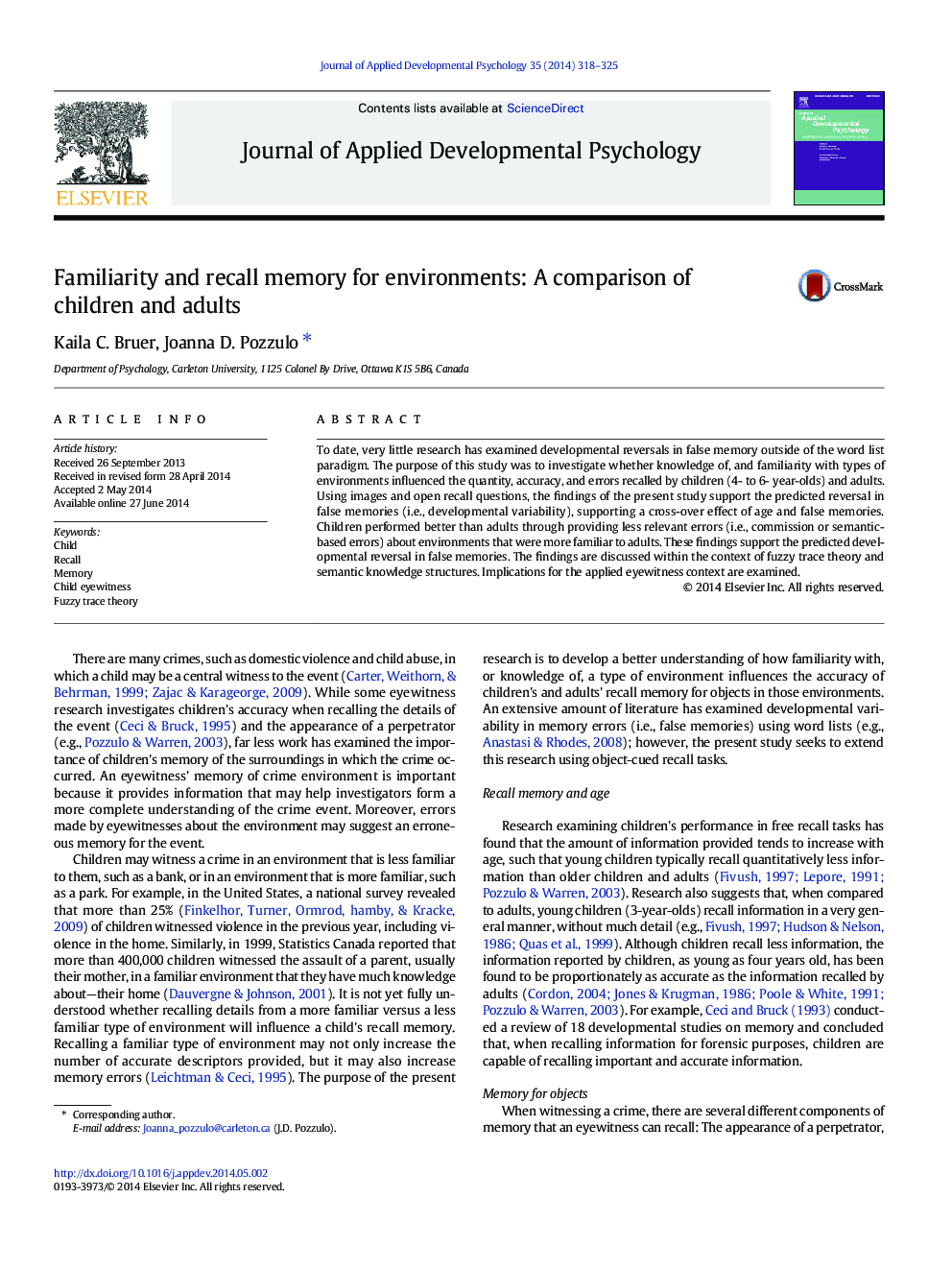| Article ID | Journal | Published Year | Pages | File Type |
|---|---|---|---|---|
| 359638 | Journal of Applied Developmental Psychology | 2014 | 8 Pages |
•Results support a developmental reversal in false memories using images and object-cued recall.•Children's recall memory was less impacted by semantically-generated errors than adults.•Familiarity with a type of environment increased the amount and accuracy of children's recall.
To date, very little research has examined developmental reversals in false memory outside of the word list paradigm. The purpose of this study was to investigate whether knowledge of, and familiarity with types of environments influenced the quantity, accuracy, and errors recalled by children (4- to 6- year-olds) and adults. Using images and open recall questions, the findings of the present study support the predicted reversal in false memories (i.e., developmental variability), supporting a cross-over effect of age and false memories. Children performed better than adults through providing less relevant errors (i.e., commission or semantic-based errors) about environments that were more familiar to adults. These findings support the predicted developmental reversal in false memories. The findings are discussed within the context of fuzzy trace theory and semantic knowledge structures. Implications for the applied eyewitness context are examined.
